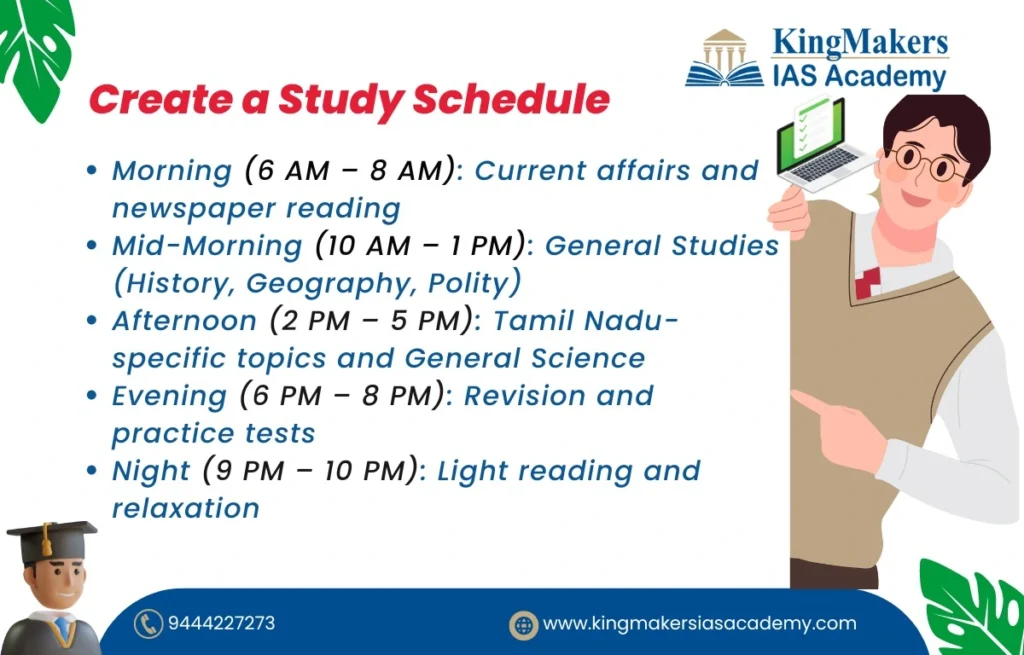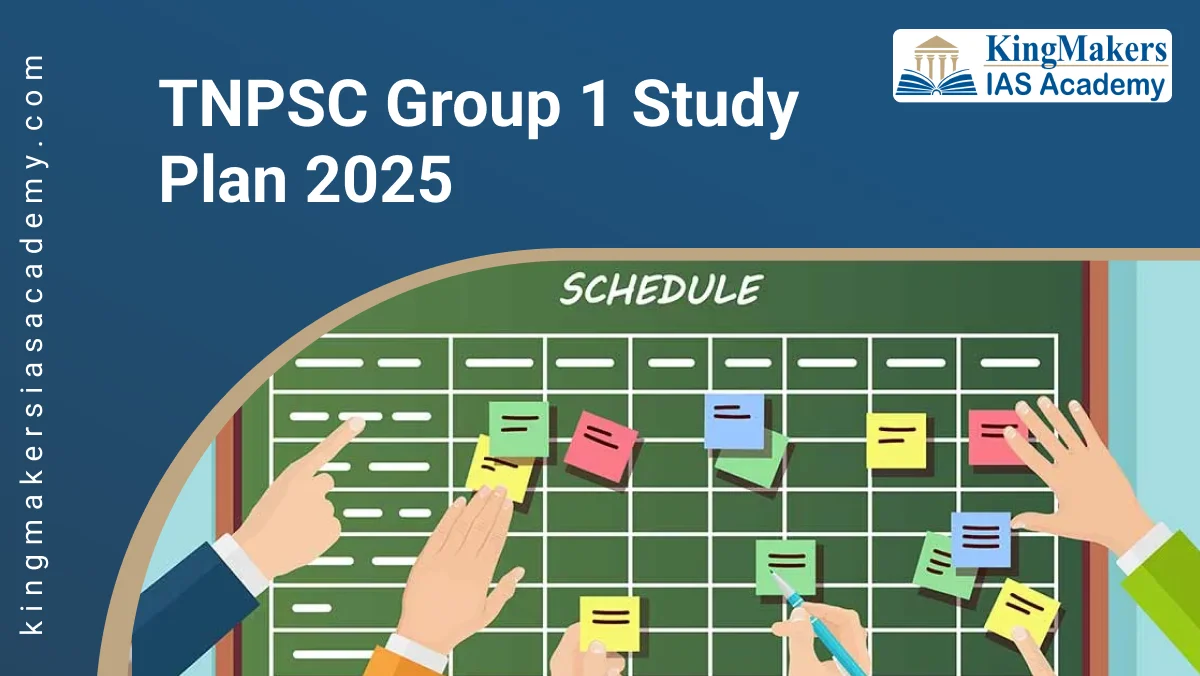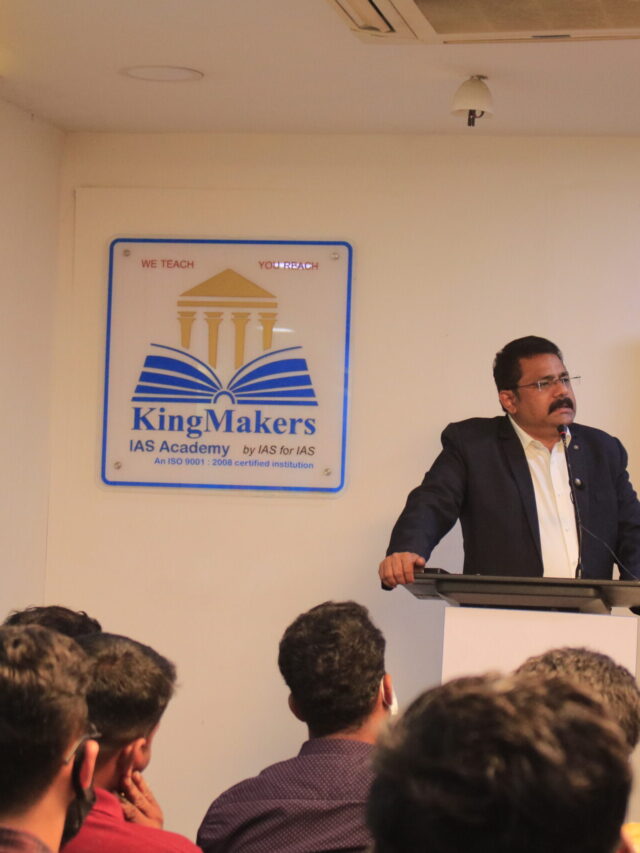The Tamil Nadu Public Service Commission (TNPSC) Group 1 exam is one of the most prestigious and competitive examinations in the state. Aspirants who dream of securing a high-ranking position in the Tamil Nadu government need to prepare diligently and strategically. To help you on your journey, we’ve crafted a comprehensive TNPSC Group 1 Study Plan 2025. This article will provide you with a clear roadmap to attain your goals.

Understanding the TNPSC Group 1 Exam
Before diving into the TNPSC Group 1 Study Plan 2025, it’s crucial to understand the exam pattern. The three stages of Group 1 exam consist of the following:
- Preliminary Exam: This is an objective type test with multiple-choice questions. For the main exam, it serves as a screening test.
- Main Exam: This stage includes descriptive-type papers that test candidates’ knowledge in various subjects.
- Interview: The final stage assesses the candidate’s personality, communication skills, and overall suitability for administrative roles.
Crafting Your TNPSC Group 1 Study Plan 2025
The TNPSC Group 1 exam is a gateway to prestigious administrative positions in Tamil Nadu. This exam requires dedication, strategic planning, and a well-structured study plan. Here’s a guide to help you craft your personalized TNPSC Group 1 Study Plan 2025.
Set Clear Goals
Begin TNPSC Group 1 Study Plan 2025 by setting clear, achievable goals. Determine how many hours you can dedicate to studying each day and what you aim to accomplish within those hours. Having a structured plan will keep you focused and motivated.
Understand the Syllabus
Thoroughly review the TNPSC Group 1 syllabus. Understanding the topics and sub-topics of the Group 1 Study Plan will help you prioritize your study material. Break down the syllabus into manageable sections and allocate time to each topic based on its weightage in the exam.
Gather Study Materials
Collect all necessary study materials, including standard textbooks, reference books, and online resources. Ensure you have access to previous years’ question papers and TNPSC-specific study guides.
Create a Study Schedule
Design a realistic and effective study schedule. Your TNPSC Group 1 Study Plan 2025 should include daily, weekly, and monthly goals. Allocate time for each subject and ensure you cover the entire syllabus well before the exam date. Here’s a sample study schedule:
- Morning (6 AM – 8 AM): Current affairs and newspaper reading
- Mid-Morning (10 AM – 1 PM): General Studies (History, Geography, Polity)
- Afternoon (2 PM – 5 PM): Tamil Nadu-specific topics and General Science
- Evening (6 PM – 8 PM): Revision and practice tests
- Night (9 PM – 10 PM): Light reading and relaxation
Focus on Current Affairs
Current affairs play a significant role in the TNPSC Group 1 exam. Dedicate at least one hour daily to your Group 1 Study Plan and start reading newspapers, watching news channels, and following reputable news websites. Make notes of important events, especially those related to Tamil Nadu.
Practice Previous Years’ Papers
Solving previous years’ question papers is a crucial part of your TNPSC Group 1 Study Plan 2025. It helps in understanding the exam pattern, the types of questions, and the level of difficulty. Try to solve at least one paper per week.
Take Mock Tests
Regularly taking mock tests after preparing the TNPSC Group 1 Study Plan is essential for evaluating your preparation level. It helps identify your strengths and weaknesses and allows you to improve your time management skills. Analyze your performance after each mock test and work on the areas that need improvement.
Revise Regularly
Revision is the key to retaining what you’ve studied. Set aside time for regular revision sessions especially while creating the TNPSC Group 1 Study Plan 2025. Weekly and monthly revisions will help reinforce your knowledge and ensure you don’t forget important topics.
Stay Healthy
Maintaining good health is vital for effective preparation. Make sure to eat a balanced diet, get enough sleep, and exercise regularly. A healthy body supports a sharp mind, enabling you to focus better on your studies.
Join Study Groups
Joining a study group can provide additional motivation and support in framing the TNPSC Group 1 Study Plan. Discussing topics with peers, sharing resources, and solving doubts together can enhance your understanding and keep you engaged.
Subject-Wise TNPSC Group 1 Study Plan 2025
General Studies
- History: Focus on Indian history that includes ancient, medieval, and modern periods. Special emphasis should be on Tamil Nadu’s history and freedom movement.
- Geography: Study physical geography, Indian geography, and Tamil Nadu’s geographical features.
- Polity: Understand the Indian Constitution, political system, and governance. Pay attention to state-specific polity.
- Economy: Cover Indian economy basics, economic reforms, and Tamil Nadu’s economy.
- Science: Prepare general science topics, including physics, chemistry, biology, and environmental science.
Tamil Nadu Specific
- Culture and Heritage: Learn about Tamil Nadu’s art, culture, literature, and heritage.
- Current Affairs: Focus on recent developments in Tamil Nadu, including government schemes, policies, and socio-economic issues.
Aptitude and Mental Ability
- Quantitative Aptitude: Practice arithmetic, algebra, geometry, and data interpretation.
- Logical Reasoning: Work on puzzles, seating arrangements, and logical sequences.
Additional Tips for Your TNPSC Group 1 Study Plan 2025
- Stay Updated: Keep yourself updated with any exam pattern or syllabus changes by regularly checking the official TNPSC website.
- Use Technology: Utilize online resources, apps, and e-books to supplement your TNPSC Group 1 Study Plan. Many educational platforms offer free and paid courses specifically for TNPSC exams.
- Stay Positive: Preparing for competitive exams can be challenging. Stay positive, maintain a disciplined approach, and believe in your abilities.
Conclusion
To conclude, achieving your TNPSC Group 1 dream requires dedication, hard work, and a well-structured TNPSC Group 1 Study Plan 2025. By following the comprehensive guide outlined above, you can systematically cover the entire syllabus, improve your problem-solving skills, and enhance your chances of success. Remember, consistency is key, and with the right strategy and mindset, you can achieve your goal of becoming a Group 1 officer in Tamil Nadu. Good luck!
Check Out: UPSC Calendar 2025.



